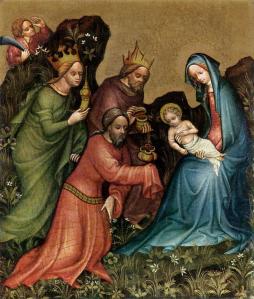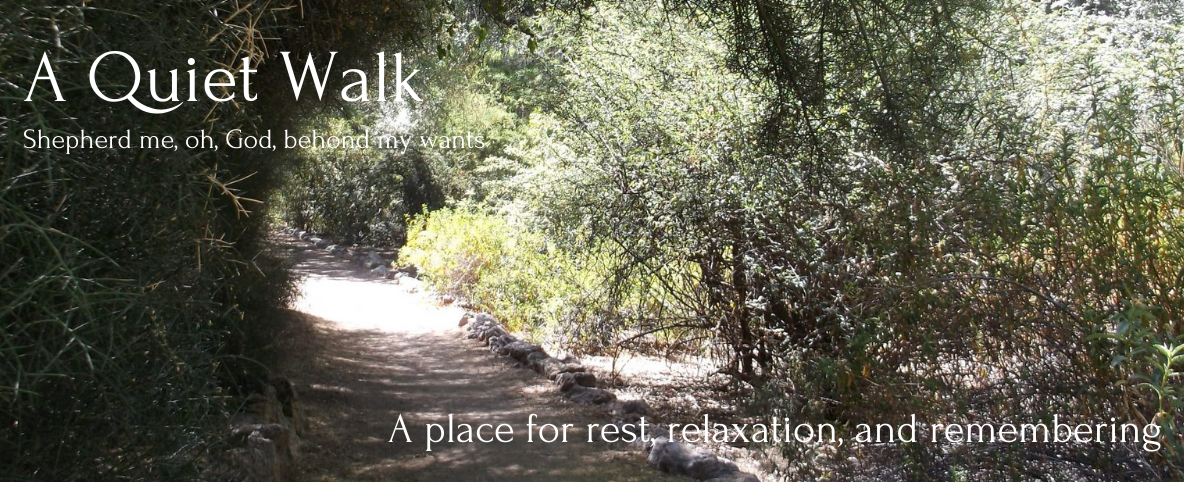
Sermon – Epiphany Sunday
January 5, 2014
Queen Anne Christian Church Seattle, WA
Matthew 2:1-12 (Common English Bible [CEB])
Coming of the magi
1After Jesus was born in Bethlehem in the territory of Judea during the rule of King Herod, magi came from the east to Jerusalem. 2 They asked, “Where is the newborn king of the Jews? We’ve seen his star in the east, and we’ve come to honor him.”
3 When King Herod heard this, he was troubled, and everyone in Jerusalem was troubled with him. 4 He gathered all the chief priests and the legal experts and asked them where the Christ was to be born. 5 They said, “In Bethlehem of Judea, for this is what the prophet wrote:
6 You, Bethlehem, land of Judah,
by no means are you least among the rulers of Judah,
because from you will come one who governs,
who will shepherd my people Israel.”
7 Then Herod secretly called for the magi and found out from them the time when the star had first appeared. 8 He sent them to Bethlehem, saying, “Go and search carefully for the child. When you’ve found him, report to me so that I too may go and honor him.” 9 When they heard the king, they went; and look, the star they had seen in the east went ahead of them until it stood over the place where the child was. 10 When they saw the star, they were filled with joy. 11 They entered the house and saw the child with Mary his mother. Falling to their knees, they honored him. Then they opened their treasure chests and presented him with gifts of gold, frankincense, and myrrh. 12 Because they were warned in a dream not to return to Herod, they went back to their own country by another route.
Greek derivation of Magi, (Strongs Hebrew, Chaldee, and Greek Dictionary)
3097. magos mag’-os (of foreign origin (7248); a Magian, i.e. Oriental scientist; by implication, a magician:–sorcerer, wise man, [interpreter of dreams, prophet]. (plural, could refer to a male or female wise person)
The story of the Magi is such a familiar story. We have heard this story so many times before and I am sure all of us are able to repeat it without difficulty, at least the surface story. I was confronted with this simple story, which is anything but simple, when I chose to meditate on it for Epiphany Sunday’s Sermon. Sitting in silence, letting the words of Matthew settle into my subconscious I realized there is so much more to this tale than I first believed. There are also way too many questions to address in a single sermon. If you ever wanted to experience an abundance of graces just read this story carefully. I could go into the fact that the gender and number of the Magi is never mentioned in the scripture and that the Magi were gentiles; or the Magi don’t visit the stable, they come to the home of Joseph and Mary; and because the story of the killing of the Bethlehem’s children that follows the Magi’s visit lead scholars to believe Jesus could have been as old as 2. And, that’s just few of the questions I found in these 12 verses of Matthew Chapter 2. What did intrigue me, and what I will discuss, was never addressed by all of the learned theologians I perused. What I wanted to know was the reason these learned gentiles come in search of a child, a child born to a carpenter and his wife. And, what unknown gifts still hides in this story for me, and all of us, beyond the pretty tale of rich strangers visiting a destitute baby?
First of my questions was what did the Magi expect to find when they arrived in Jerusalem. Since they came to the city of the kings of Judea they must have expected to find the child born there, and to parents with more than a lineage to David. My guess is they had expected to find a somewhat wealthy family, or at least fairly well off. After all they were looking for a King and you normally don’t find one living in the home of working class people. They must also have been confused and terribly disappointed that no one knew what they were talking about. I mean, the birth of a King is big news isn’t. Doesn’t everyone celebrate the birth of a King? It isn’t until King Herod calls them for an audience do they learn that the prophets foretell the birth of “the anointed one,” “the Christ,” was to happen in Bethlehem. I have no doubt they left somewhat confused. But, eventually they find the baby living in the home with his mother and father. They even bring gifts, and while Mary might have preferred diapers, the gifts they gave were costly and fit for a King. (By the way Bethlehem and the gifts are never mentioned again, why? Another question to confound me.)
They were seeking a child, an infant King, someone who would turn the Roman world upside down and I can only imagine their surprise at finding the child in such humble circumstances. They brought gifts Herod would have drooled over, gold, frankincense, myrrh. Wonderful gifts but not really practical for the family they found, well the gold was probably most welcome. But frankincense and myrrh those aren’t baby gifts. Frankincense and myrrh were used to perfume oils and ointments for the purification of worship spaces and the anointing of the dead.
Now I know what Matthew was implying by the gifts: Gold was the symbol of Jesus’ kingship, frankincense the symbol for the priestly role Jesus would be called to live, and myrrh a foretaste of what he would endure at the end of his life. But I think these gentile scholars brought something else and it has been bequeathed to us today and our children. The Magi brought the gift of “seeking God’s face.”
God has always welcomed us and longed for our inquisitive search for the face of the Divine, and She encourages us to reach for her Holy arms. One of David’s Psalms says it well:
30 I will praise God’s name with song;
I will magnify him with thanks
31 because that is more pleasing to the Lord than an ox,
more pleasing than a young bull with full horns and hooves.
32 Let the afflicted see it and be glad!
You who seek God—
let your hearts beat strong again
— Psalm 69:30-32 (CEB)
And in the Book of Acts Paul tells the Athenians “27 God made the nations so they would seek him, perhaps even reach out to him and find him. In fact, God isn’t far away from any of us.” (Acts 17:27) No God is never far away, we are. And, seeking the face of God is one of the joys of creation we should do more often.
The Magi were the first to seek God’s face in its incarnated form, the face of a child. For Matthew the Magi represent the mission Jesus gives his disciples to reach out to all peoples but especially gentiles, and those born within the great humble mass of humanity, in all its lovely diversity; poor and rich, young and old, all genders, all races, and all people.
For me the Magi represent the longing to see God in the face of my beloved, my grandchildren, best friend, and all creation. I too want to see the incarnated God, I too long to see the ever present being in the first light of dawn, and I do see it in the face of my beloved when he first opens eyes in the morning. The Magi have passed this longing down to us and I am grateful for the gift and grateful to pass it on to the next generation.
The Magi’s gift of presence to a child in a humble home was passed on to us through Jesus’ presence in his life, death and resurrection. Now it is our mission to be present to the incarnated child born to humble parents. To recognize and honor the incarnation born in each of us, through our gifts to the world whatever they may be; caring for each other, the environment, our nation, and our world. It is up to us to be the Magi of today and visit the child in a humble home, to offer the gold of our love, to purify our mistakes with the frankincense of compassion; and to anoint those who pass on to the next world with the myrrh of God’s blessings and praise. In a Judean desert David writes:
God! My God! It’s you—
I search for you!
My whole beingthirsts for you!
My body desires you
in a dry and tired land,
no water anywhere.
2 Yes, I’ve seen you in the sanctuary;
I’ve seen your power and glory.
3 My lips praise you
because your faithful love
is better than life itself!
4 So I will bless you as long as I’m alive;
I will lift up my hands in your name.
— Psalm 63:1-4 (CEB)
So too are we called to offer our praises to God, honor the child that lives today, in each one of us, and in all of creation. Seek the face of God in all you meet, child, adult, male or female, and all of God’s marvelous creation. Look in the eyes of your loved ones, your companion animals, see the face of God looking back. Amen
Ruth Jewell, ©January 7, 2014

